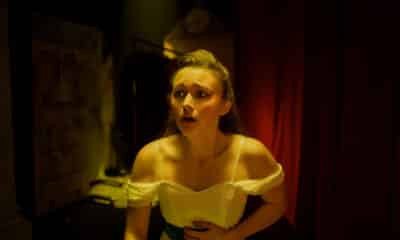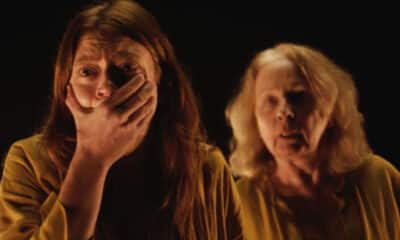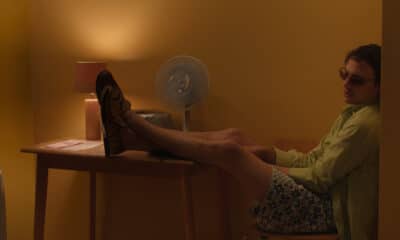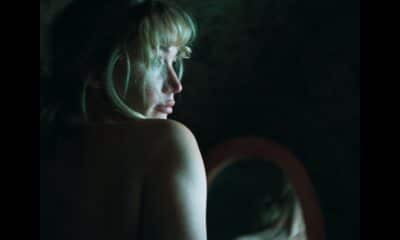Based on the true story of the Jane Collective, which offered an underground abortion service to women in late 1960s Chicago, Carol screenwriter Phyllis Nagy offers up a light-hearted, uplifting account of the subject matter with Call Jane, a film that manages to resonate some sixty years on.

Focussing its attention primarily on Joy (a solid Elizabeth Banks), the film starts in 1968 when the young, married, middle-class mother of a teenager, finds herself pregnant. However delighted she may be, there’s a health issue, one that will threaten her life if she has the baby. A termination seems to be the only option, as she faces only a 50% chance of survival if the pregnancy goes full-term, though official routes through the system don’t come off and, this being the late 1960s where abortion is still illegal, must seek an alternative.
After initially tracking down an underground service, and then running for the hills after it reveals dank, gross, and less-than-hospitable surroundings, Joy comes across a flyer on the street with a phone number for anyone with pregnancy anxiety to ‘Call Jane’, which she duly does.
At the end of the phone line, Joy discovers the Jane Collective, a group of activists who have set up a service for women to call upon to find a solution when there is no other choice. The cost for a simple 20-minute procedure is a hefty $600 (over $5000 in today’s money), payable in full to a ropey doctor, Dean (Cory Michael Smith) who is clearly making a small fortune from the operation week after week. The head of the Jane Collective is former front-line activist Virginia, who has assembled a team of like-minded volunteers to make a difference amongst the women who call upon them on a daily basis.
After paying her cash, and being led to the top-secret premises by Wunmi Mosaku’s Gwen, Joy has her procedure. It is uncomfortable, but safe – over in a matter of minutes – but Joy’s visit sparks interest and, after being asked for a favour by Virginia, she learns how to set her own judgements of the many visitors and their reasons to seek termination to one side, eventually joining the cause herself.
Filmed in grainy, 16mm to fit the period in which it is set, Call Jane is a completely involving, very easy watch. Teamed with The Janes, an HBO-bound documentary also premiering at Sundance, the film approaches its serious subject matter with a more blithe approach, Nagy and her team opting for an uplifting tone through upbeat music accompaniment and bright tones. A positive approach is taken throughout, though there are scenes that are a tough watch.
The ensemble, particularly Banks and Weaver are superb, completely watchable throughout, joined by strong support by Mosaku and Kate Mara, popping up as an over-interested widow living next door.
It is easy to see the direction in which things are being taken, Nagy and the screenwriters – this is skilfully written by Hayley Schore and Roshan Sethi – paints the story with an elevating tone that, while overly glossy in places, leaves the viewer completely inspired once those final credits roll.
Call Jane
Paul Heath
Summary
Told with an engaging, positive, and uplifting tone, Phyllis Nagy’s film features superb performances all-round, particularly from Banks and Weaver. An accessible film that deals with its serious subject matter simply, but effectively.

Latest Posts
-


Film Reviews
/ 16 hours ago‘Fear Street: Prom Queen’ review: Dir. Matt Palmer (2025)
It has been four years since Leigh Janiak’s Fear Street trilogy took horror fans...
By Kat Hughes -


Film Reviews
/ 17 hours ago‘The Surrender’ review: Dir. Julia Max (2025)
As Julia Max’s debut feature, The Surrender, unfolds, the inspirations for the film become...
By Kat Hughes -


Film Trailers
/ 2 days agoFirst trailer for Darren Aronofsky’s ‘Caught Stealing’
Sony Pictures has released the debut trailer for Darren Aronofsky’s new film Caught Stealing,...
By Paul Heath -


Film Reviews
/ 3 days ago‘Lilo and Stitch’ review: Dir. Dean Fleischer Camp (2025)
Director Dean Fleischer Camp won audiences over with the fantastic Marcel the Shell with...
By Kat Hughes







